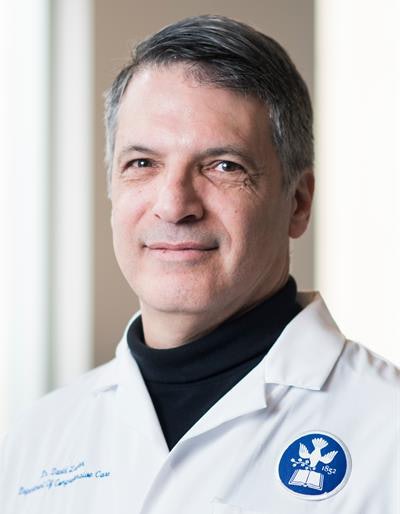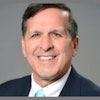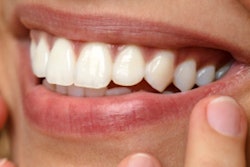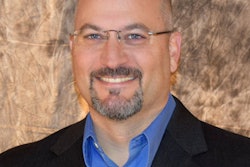
Could the dental office become a one-stop shop for oral and primary healthcare? In a new study, the ADA Health Policy Institute found physicians and dentists may be inclined to share some patient responsibilities. However, this interprofessional collaboration may be easier in theory than in practice.
 Lead study author David Leader, DMD, MPH.
Lead study author David Leader, DMD, MPH.Lead author David Leader, DMD, MPH, interviewed dozens of dental, medical, and public health professionals in Massachusetts about how dentists might fit into the traditional medical system and whether they could help relieve the impending physician shortage. Dr. Leader and colleagues summarized their responses in a paper published in December 2018 on the Health Policy Institute's website.
"The results of our pilot study demonstrate that there is an opportunity and interest for the expansion of the scope of dental practice in Massachusetts to include preventive systemic medicine," wrote Dr. Leader, an associate professor at Tufts University School of Dental Medicine, and colleagues. "The ultimate goal is to meet the quadruple aim of healthcare: enhancing patient experience, improving population health, reducing costs, and improving the work life of healthcare providers."
Merging medical and dental care
The American Association of Medical Colleges predicts the U.S. will face a shortage of primary care physicians in the next decade. Although other countries have investigated whether dentists could help fill the role of chronic disease managers, limited studies have been conducted on this topic among U.S. dentists and physicians. Therefore, Dr. Leader and colleagues analyzed insights gleaned from interviews with 28 oral and medical healthcare stakeholders in Massachusetts.
“There is an opportunity and interest for the expansion of the scope of dental practice in Massachusetts to include preventive systemic medicine.”
The interviewees all saw benefits in expanding dentists' roles to include some primary care tasks. They believed dentists could bring primary care screenings to areas that don't have access to a doctor or where doctors have limited capacity. Dentists also may be uniquely positioned to screen and monitor chronic conditions, such as diabetes and high blood pressure, because they see patients more often than physicians.
Dentists and physicians also both recognized the importance of the oral-systemic link although each specialty focused on different aspects. Dentists said oral healthcare potentially could reduce the cost of managing chronic diseases, while primary care physicians emphasized how dental care could reduce general inflammation.
Physicians were optimistic that preventive screenings and monitoring at the dental office could free up their time to focus on more complicated cases and could improve patient care. However, they also were concerned about the duplication of patient care and whether patients would think a dental office screening alone was sufficient. Meanwhile, dentists noted they would only help the physician shortage if they treated patients who did not already see a physician because of distance or a lack of capacity.
"Overall, subjects anticipated that dentists would benefit the practice of primary care medicine by providing physicians with prescreened patients, ameliorating the overwhelming demand in systemic care practices," the authors wrote. "However, systemic health providers were more specific in what types of patients and conditions dentists should be responsible for, arguing that dentists should support rather than overtake the role of primary care physicians."
Potential challenges to collaboration
Although healthcare providers agreed that dentists could help screen and monitor for chronic conditions in theory, implementing that collaboration would be difficult. Dentists would need to start taking more intense physiology, anatomy, histology, and microbiology courses in dental school, the authors noted. In addition, they would need to learn the protocols for medical note-taking and referrals.
Beyond education, dentistry and medicine would likely have to unify electronic health record systems and state health programs, as well as determine the precise primary care roles of dentists. Even so, turf wars may occur with physicians, nurse practitioners, and physician assistants.
Some patients also may be concerned about dentists providing some primary care, but most dentists believed patients would be open to the experience. Dental offices could even consider employing medical staff, which the Harvard School of Dental Medicine already is trying with a nurse practitioner.
"Our subjects' prevailing outlook that patients would react positively to the expanded role of dentists to include primary care agrees with earlier research that found, by an overwhelming margin, patients accept the concept of medical screening in dental practices," the authors wrote.
Further testing the idea
This study helped to synthesize the viewpoints of relevant healthcare stakeholders, including dentists, oral surgeons, nurses, physicians, and educators. However, the results may not be generalized to rural parts of Massachusetts or other U.S. states, the authors noted.
They also emphasized the obstacles to physician-dentist collaboration are great and that the industry needs further, qualitative research into the subject.
"Qualitative research like this study helps frame questions for further researchers," the authors wrote. "A deeper study could include surveys of groups of systemic and oral health providers outside of Massachusetts and of the public to gauge the opinion of dentistry's ability to include chronic health monitoring."



















